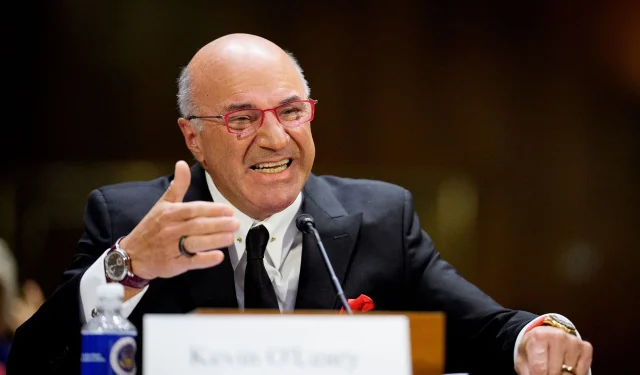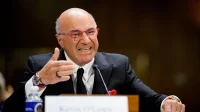Kevin O’Leary Discusses TikTok’s Purchase Legalities on The Don Lemon Show
In a recent Instagram reel dated April 11, 2025, Shark Tank’s Kevin O’Leary shared insights on the complex legal landscape surrounding the potential acquisition of TikTok during a conversation on The Don Lemon Show. O’Leary revealed that Senator Tom Cotton informed him that Congress is unlikely to permit any entity to acquire TikTok while retaining its algorithm.
O’Leary elaborated that the senator stressed that no party, including himself, would receive any assurance from Congress when pursuing such a transaction. The existing legal framework, which received approval from the Supreme Court, prohibits entities from utilizing TikTok’s algorithm, primarily developed in China.
According to O’Leary, efforts to acquire TikTok alongside its algorithm could result in staggering financial repercussions:
“They would be sued 80 or $800 billion a year as per the penalties provided in the law,” he stated in his post.
He concluded by noting the unmistakable reality: any potential buyer must accept that TikTok would come without its algorithm, and there would be no legal shield from Congress.
Understanding the Protecting Americans from Foreign Adversary Controlled Applications Act
During his discussion with Don Lemon, O’Leary elaborated on the ramifications of the Protecting Americans from Foreign Adversary Controlled Applications Act (PAFACA), which explicitly restricts companies from leveraging TikTok’s algorithm. He mentioned that while some proposals have emerged seeking to safeguard potential buyers from legal implications, key lawmakers such as Senator Cotton firmly oppose such initiatives.
“He went online and basically said, ‘Listen we wrote this law, and then the Supreme Court ratified it nine to zero, and it says you cannot use the Chinese algorithm’,”O’Leary recalled, addressing prospective U.S. buyers like himself.
O’Leary emphasized that the Supreme Court’s unanimous decision reinforces this legal framework, rendering any attempts to challenge it in court futile. This clarity has resulted in diminished interest among prospective buyers. He pointed out that Congress would not offer any form of indemnification, thus opening businesses to significant legal liabilities.
The motivation behind these regulatory measures focuses on national security, reflecting the U.S. government’s objectives to prevent the integration of Chinese technology into critical infrastructure. O’Leary conveyed that while there remains a strong desire to acquire TikTok, the exclusion of its algorithm substantially devalues the deal. He suggested that unless legislative changes occur, “you won’t be buying it with the algorithm.”
Barriers to a Successful TikTok Acquisition
In a January 2025 dialogue with CNBC, O’Leary reiterated his ambition to secure TikTok through a 50/50 ownership model proposed by Donald Trump. He and his team, alongside Project Liberty’s Frank McCourt, had offered $20 billion to purchase TikTok, deliberately excluding its algorithm.
“That 50/50 deal, I would love to work with Trump on, so would every other potential buyer. But the problem with some of these ideas is they are inconsistent with the ruling of the Supreme Court,”O’Leary elucidated.
Despite Trump’s provision of a 75-day extension for TikTok to explore new alternatives, O’Leary emphasized that this time frame is inadequate without legislative reforms. He advocates for Congress to reevaluate the existing regulations and facilitate opportunities for legal transactions.
While O’Leary recognizes that Trump’s interim measures might provide some respite, he cautions that pursuing them without Congressional endorsement risks regulatory fallout. Meanwhile, Project Liberty has expressed its willingness to collaborate with all stakeholders to devise technological solutions that address national security concerns. However, all agreements must comply with the Supreme Court’s definitive ruling.
For those interested, episodes of Shark Tank are currently available for streaming on ABC.


